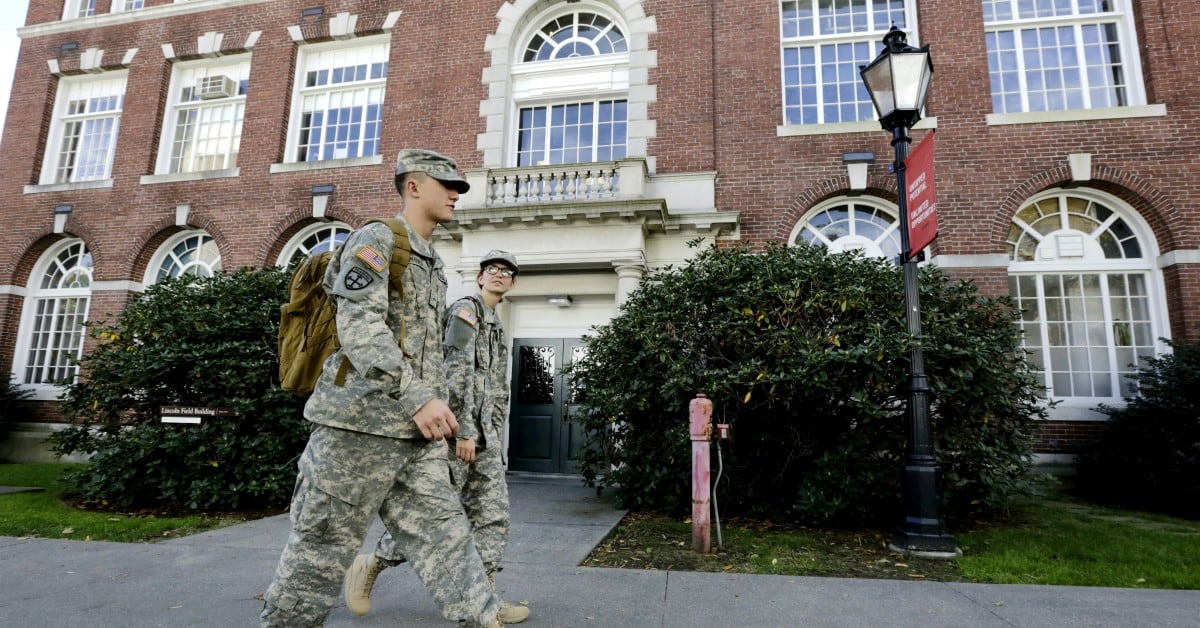Federal Trade Commission officials are vowing to crack down on “shady” recruiting tactics used on service members and veterans by for-profit colleges with harsh new financial penalties for offenders.
On Wednesday, the commission sent notices to 70 of the largest for-profit colleges alerting them of the potential for fines of more than $43,000 per offense for unfair or misleading recruiting tactics. Officials said the move comes in response to a 70 percent increase in complaints around education and recruiting issues between 2018 and 2020.
“For too long, unscrupulous for-profit schools have preyed on students with impunity, facing no penalties when they defraud their students and drive them into debt,” said FTC Chair Lina Khan said in a statement. “The FTC is resurrecting a dormant authority to deter wrongdoing and hold accountable bad actors who abuse students and taxpayers.”
RELATED

Industry representatives decried the move as a baseless attack on their business model.
“The FTC announcement includes no findings of wrongdoing at any for-profit institution,” said Jason Altmire, president and CEO of Career Education Colleges and Universities. “Publicly announcing that it is sending warning letters to 70 of the largest for-profit institutions arbitrarily impugns the integrity of institutions that are in full compliance with FTC regulations.”
But commission officials in their announcement noted several recent high-profile settlements related to false claims of job placement and employment opportunities connected to for-profit degree programs. They insist the action is needed to rein in the industry and protect students, particularly service members and veterans.
“For-profit schools have had a strong incentive to enroll veterans because of the education benefits service members can use to pay for college,” the commission’s announcement stated. “This has led to aggressive targeting of servicemembers, veterans, and their families.”
Earlier this year, lawmakers included in an emergency COVID relief package an overhaul of to so-called 90/10 rule, which requires colleges and universities to have at least 10 percent of their revenues derived from non-federal sources.
The idea behind the regulation is to ensure that for-profit institutions aren’t funded solely by federal monies, but instead also include significant investment by students interested in furthering their education.
However, under a loophole in federal statute, GI Bill benefits and Defense Department Tuition Assistance programs were not counted as federal dollars, despite being taxpayer-funded benefits. That incentivized schools to target those groups and their stable, reliable tuition money.
The changes approved last spring undid that loophole, but FTC officials said that troops and veterans remain heavily targeted by the schools.
Industry officials say that’s because those groups are more likely to seek out non-traditional college classes, to better match with their family and work schedules.
Altmire said he was “surprised that only for-profit institutions will be subjected to these [new] enhanced civil monetary penalties, while other bad actors under the FTC’s jurisdiction will not be held to the same standard.”
RELATED

But veterans advocates hailed the move.
“Up until today, veterans and service members have been seen as a gravy train for some of the worst schools in America, exploiting grandiose marketing schemes and even outright lies to keep investors happy,” said William Hubbard, vice president at Veterans Education Success.
“This changes all of that,” he added. “This is the FTC declaring war on some of the worst schools in higher education. Students will have a greater chance of going to better schools without all the tricks up the sleeves of so many fly-by-night programs.”
FTC officials said the fines will be based on misleading claims related to “the career outcomes of their graduates, including whether a particular career field is in demand, the percentage of graduates who get jobs in their chosen field, whether the institution can help a graduate get a job, and the amount of money a graduate can expect to earn.”
A full list of institutions that received warnings from the commission is available on its web site.
Leo covers Congress, Veterans Affairs and the White House for Military Times. He has covered Washington, D.C. since 2004, focusing on military personnel and veterans policies. His work has earned numerous honors, including a 2009 Polk award, a 2010 National Headliner Award, the IAVA Leadership in Journalism award and the VFW News Media award.




